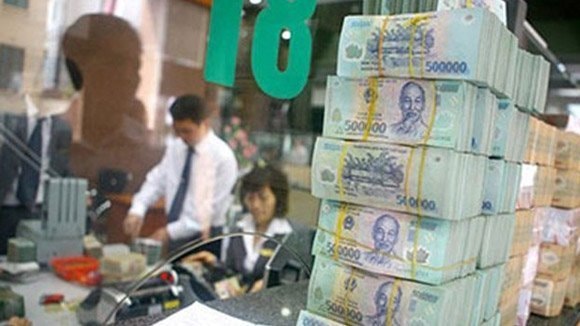The more money you borrow for business, the heavier the tax.
Businesses that borrow too much money to do business, the more times their equity is exceeded, the more heavily they will be taxed. This, the Ministry of Finance explains, is to conform to international practice.
In the direction of amending the Corporate Income Tax Law, the Ministry of Finance said it also aims to heavily tax businesses that borrow capital many times more than their equity.
According to the Ministry of Finance, the current Corporate Income Tax Law does not have regulations controlling the amount of loan interest expense that cannot be deducted from expenses in cases where the loan exceeds many times the owner's equity.
These are enterprises that the Ministry assesses as having thin capital, operating mainly on borrowed capital, while the equity ratio is very low.
The Ministry of Finance believes that: In fact, many businesses have loans for production and business that exceed their equity many times, leading to the risk of financial insecurity for the businesses and is also one of the factors affecting budget revenue.
 |
| Businesses that borrow too much money to do business, the more times it exceeds its equity, the more heavily they are taxed. |
Specifically, the Ministry of Finance explained that revenue management work has shown that recently, a number of foreign direct investment (FDI) enterprises operating in the real estate, trade, and service sectors reported losses in production and business results, while revenue has always grown over the years and the enterprises have continuously expanded their production and business scale.
Through reviewing the financial statements of enterprises, the Ministry of Finance discovered that the reason for the loss of enterprises was partly due to the financial costs (interest payments for loans to parent companies abroad) being too large, with some companies even spending up to several thousand billion VND per year on interest payments.
Citing international experience, the Ministry of Finance said: Many countries have regulations on thin capital, according to which interest payable on borrowed capital exceeding a certain ratio (ratio of borrowed capital to equity) is not considered a deductible expense when calculating corporate income tax.
Specifically, the Organization for Economic Cooperation and Development (OECD) recommends applying a loan-to-equity ratio of 3:1 (meaning loan capital is 3 times larger than equity capital).
According to the Ministry of Finance, in reality, most countries such as Taiwan, New Zealand, Germany, Australia, Japan, Poland, the Netherlands, Spain, Chile, Peru, South Africa, Portugal, and Brazil stipulate that if a business's loan capital exceeds 3 times its equity, it is considered thin capital.
In some developed countries, the ratio is lower, such as Canada, which requires loan capital to be 2 times the owner's capital; France, the US is 1.5:1, and even in Venezuela, this ratio is 1:1.
In some countries, this ratio is also differentiated by subject. For example, China stipulates a ratio of 2:1 (loan capital is 2 times the owner's equity) for normal enterprises, 5:1 (loan capital is 5 times the owner's equity) for financial institutions...
"Accordingly, the interest payable exceeding the ratio considered as thin capital is not included in deductible expenses when calculating corporate income tax," said the Ministry of Finance.
Therefore, the Ministry intends to learn from the experience of other countries. Accordingly, it is necessary to add a regulation that does not include in deductible expenses the interest payment portion of the loan corresponding to the loan exceeding 5 times the owner's equity (5:1) for the manufacturing sector, exceeding 4 times the owner's equity (4:1) for the remaining sectors; for some specific sectors such as credit and banking, a higher ratio is applied: not exceeding 12 times the owner's equity.
This, according to the Ministry of Finance, is "to ensure the financial health of businesses and the economy, contributing to promoting economic restructuring and combating transfer pricing".
If this plan of the Ministry of Finance is approved, businesses that borrow capital many times more than their own capital will have to pay more taxes because they cannot deduct expenses for loans exceeding the limit.
According to VNN
| RELATED NEWS |
|---|








